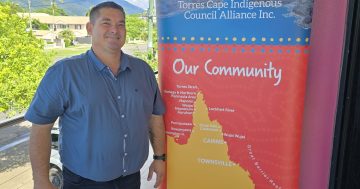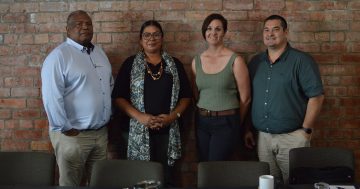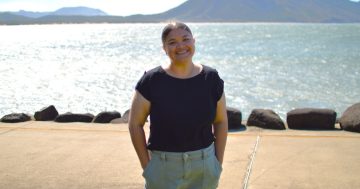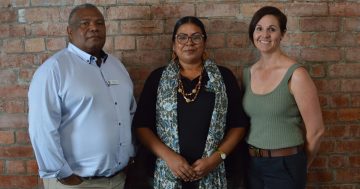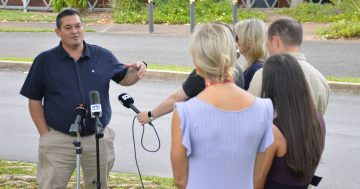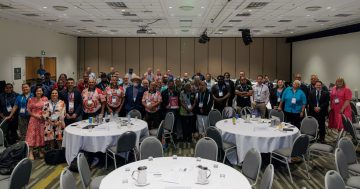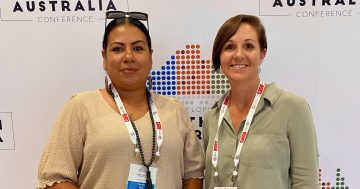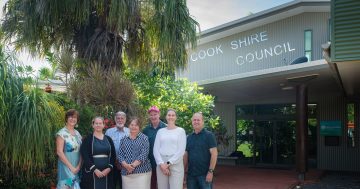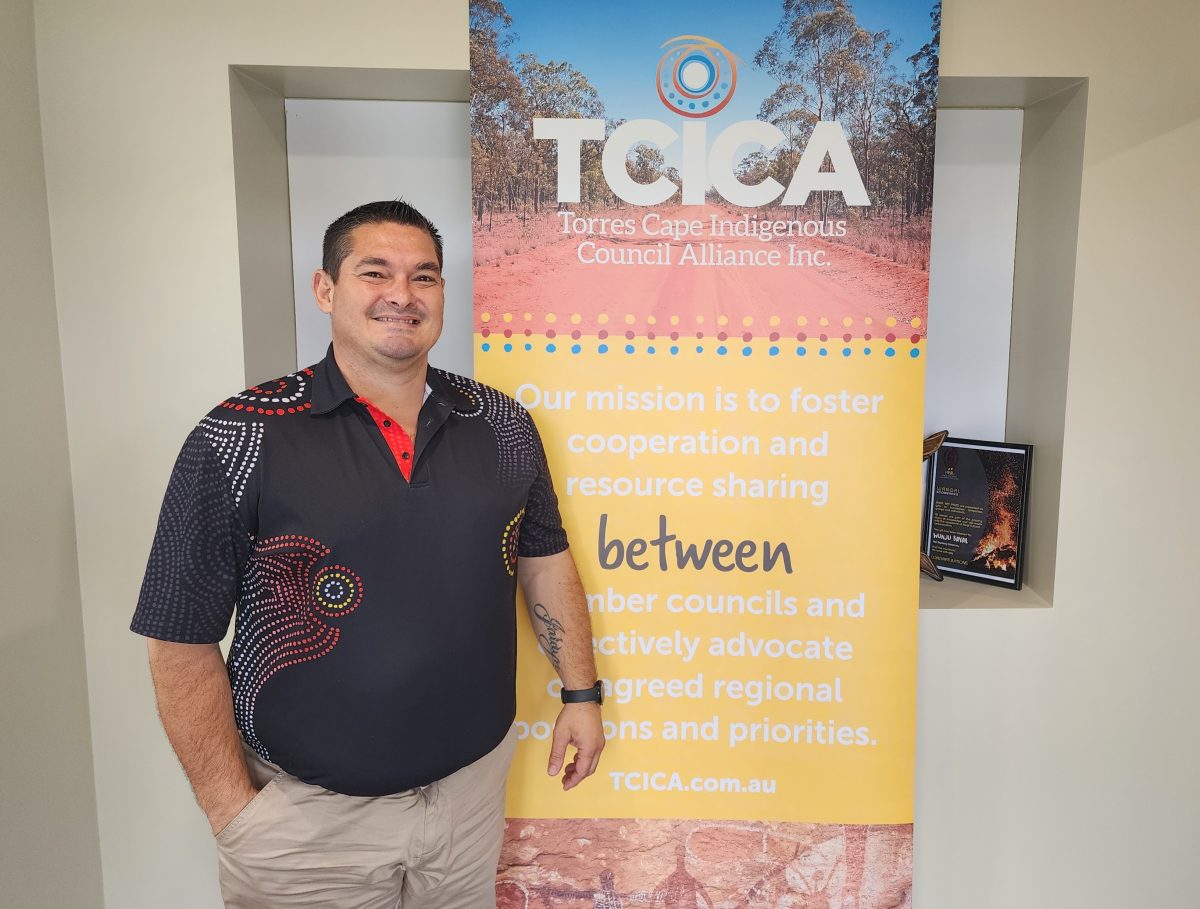
TCICA executive officer says he hopes to put an unconventional collaboration between member councils and Traditional Owner groups on the agenda as the drive for remote community sustainability continues. Photo: Lyndon Keane.
The new boss of the body representing Cape York and Torres Strait councils says he sees collaboration between local government and Traditional Owner groups as a vital stepping stone towards sustainability for Indigenous communities.
After taking the reins of the Torres Cape Indigenous Council Alliance (TCICA) from previous executive officer Melinda Eades a month ago, Mick Miller has hit the ground running and said continued advocacy at local, state and national levels would remain a priority for the organisation and its member councils.
The TCICA membership is made up of 14 of the state’s Indigenous local governments, in addition to Cook Shire Council and Weipa Town Authority.
Cape York is not a new operating environment to the Olkola man, and he said his personal and professional roots made his transition into the new role feel extremely familiar.
“My grandmother was born on the Alice River there, and we’re from Killarney Station, just inland from Kowanyama,” he explained.
“I’m still an active member within the Olkola Aboriginal Corporation, but, yeah, it is quite familiar coming back here in this role.
“With my 20-plus years’ employment with the government, I’ve always had a role that’s ended up coming back into the Cape, and worked with the Cape on a lot of the issues that I’m going to be dealing with here.”
That employment experience was most recently as a program director for the State Government’s Remote Indigenous Land and Infrastructure Program Office, and Mr Miller said his new role had a number of strategic alignments to his former responsibilities.
“I think the knowledge that I’ve gained working in that program director’s role, just recently, and other roles I’ve worked in the infrastructure side of it, there’s a connection around that service delivery, and it’s always been focused on the betterment of Indigenous communities,” he said.
“Coordination and collaboration” will be the motto for Mr Miller in the new role, and he explained he wanted to strengthen stakeholder relationships to ensure decision makers were afforded a seat at the table when communities were determining their direction.
Mr Miller said he had had preliminary discussions with the TCICA senior leadership team, including chair and Kowanyama Mayor Robbie Sands, about his vision to bring member councils and representatives of registered native title bodies corporate (RNTBCs) and prescribed bodies corporate (PBCs) together to find a workable solution to the issue of land availability in communities managed under the Deed of Grant in Trust (DOGIT) legislative framework.
“I’ve had some very early conversations with the TCICA chair, and the deputy chair, just to say ‘look, this is where I think we obviously need to progress’,” he told Cape York Weekly.
“We need to explore what opportunities there are for our membership, the TCICA membership, and the RNTBCs and PBCs, and how we can actually work better and collaborate.
“It sounds really easy, however, I think we need to get to a point where TCICA is here for the community, and if I can, in some way, shape, or form, assist with improving the relationships and collaboration outside the DOGIT area, outside the local council, and our other partners in community, I think that will be a betterment overall.”
Mr Miller admitted the local government elections on 16 March, 2024 could change the look of which council representatives sat around the TCICA boardroom table, however, he said he was confident the ultimate ambition of the membership would not change dramatically.
“There are opportunities for TCICA and our members to grow around the service delivery model, and that better coordination, so [it’s about] getting government to sit at the table with TCICA so that we … start to talk about how we assist with the ground delivery of services,” he said.
“We can reduce the red tape of government, and start to put more money on the ground connecting in [for communities].
“That’s why we’re here.”


